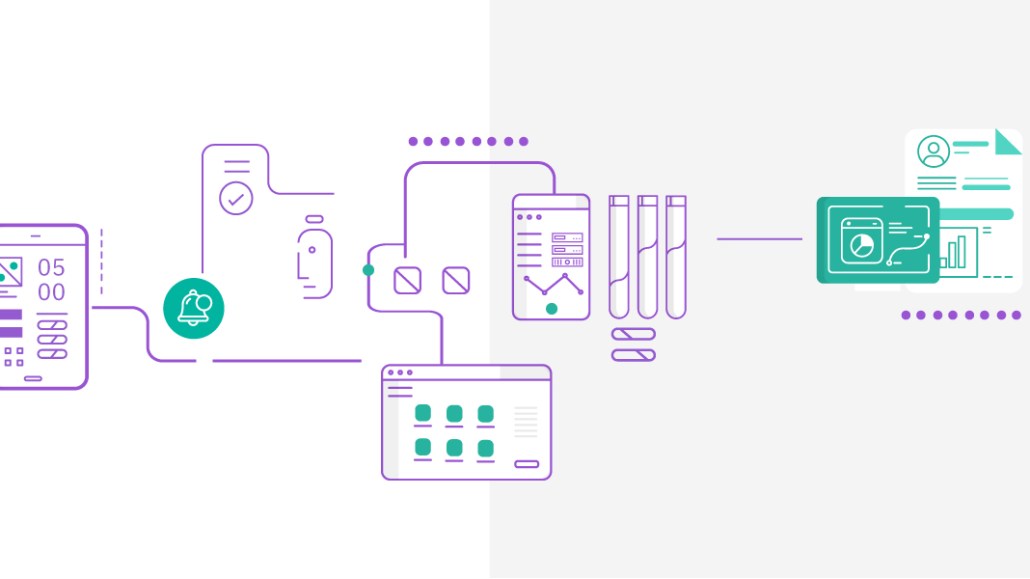Secure your place at the Digiday Media Buying Summit in Nashville, March 2-4


It’s easy to focus on the abstract, long-term potential of artificial intelligence. But its true promise is much more near-term, in the immediate impact and relief it can bring to a marketing team. This is made much clearer when looking at AI through a recruiter’s lens.
AI has joined the workforce at a quickening rate over the past few years, with high-profile uses in retail, banking, medicine and now marketing. But while aspects of AI have become core to some professions (today’s copywriters are handicapped without a spell checker), it’s still tough for some industries to accept that AI can actually stand on its own in a supporting role that augments the rest of the team.
We talked to two recruiters about the bona fides of IBM Watson Marketing to discover the best roles and responsibilities for this new cognitive resource as it joins marketing departments worldwide.
The ideal marketing partner
With a resume that includes everything from email campaign management to comprehensive unstructured data analysis, Watson Marketing stands out from both the familiar human resources and other AI solutions. But just like any other hire, these virtual workers need to be placed in the right role to truly shine.
“In a business focused on people and driving growth, AI is best used as a support function for those in leadership roles,” says David Salinger, president of Engro Partners a marketing and tech recruitment firm. “The whole concept of AI in general, especially Watson, should be around enabling teams and individuals in organizations to be more effective.”
And its past experience shows that it can support in a ton of ways, from crafting data-driven email campaigns for the Georgia Aquarium to insightful UX enhancements to help ING DIRECT Australia personalize consumer experiences and improve its customer acquisition rate. With expertise that extends to processing data, analyzing images and automating routine tasks, it’s perfect for a role as a marketing exec’s right hand.

“I would put Watson in a definite number two role, where it could lead the supporting team,” said Alan Cutter, CEO of tech and marketing recruitment firm AC Lion. It can also shave hours off the workdays of higher level employees, taking routine tasks off of their plates and leaving those creatives to do what they do best — idea generation.
“AI is going to allow you to do what you specialize in and allow you to use your brain to think more, to be more strategic and creative,” said Cutter. “Allow the AI to do the job that you never really wanted to do and, frankly, aren’t as good at.” This includes areas like data analysis and routine task management—areas in which Watson Marketing excels, but most humans don’t have the time or interest to do with machine precision.

The advantage of a T-shaped skill set
With unique attributes that can translate across a number of disciplines, recruiters would refer to Watson Marketing’s skillset as “T-shaped”: deep focus in one specialized area (in this case, marketing analysis and prediction) but supporting skills across multiple facets.
While Watson Marketing’s core competency rests in its analytic and predictive ability, its secondary skills include things like image recognition and sentiment analysis. These contribute to the platform’s versatility and can be key to solving unconventional (but all too common) marketing problems, like analyzing images, audio recordings and chatter from social platforms.

Watson also has an impressive fluency in nine languages, has been trained in 20 industries and is currently deployed in 45 countries — traits which help marketers globalize their messages.
“Targeting marketing messages for different groups within the United States in itself is a major field, and it can be very, very difficult to find multilingual marketing people,” said Cutter. “It’s also quite expensive.”
This global fluency also helps marketers localize their operations, ensuring that each team, regardless of geography, can use the same unified solution. Salinger notes an accelerating trend in businesses opening local offices to stay in touch with regional communities: “There has been a growing need for people that speak certain languages or have worked for certain markets.” Watson Marketing passes the test.

Introducing AI to the team
When a team is ready to add AI to their roster, the onboarding process should focus on the potential and availability of these new tools to all members. The best approach is inclusive and forward-looking, showing the relative gains and advantages of AI-powered marketing.
“Get demos,” advised Salinger. “You have to show them [how much more efficient these tools are] in relation to what it would be with an intern or with a junior person.” Relating Watson back to a common context can provide a more seamless transition—as can pointing out the inherent benefits of bringing on AI support.
“The way to have the buy-in of the managers is to really make sure they understand that this is going to be a support role,” says Cutter. “Emphasize that they’re going to learn from the AI, it’s going to make everything more data-driven, [allow them to] make more rational, truthful decisions. They’re going to embrace that change.”
More from Digiday

From feeds to streets: How mega influencer Haley Baylee is diversifying beyond platform algorithms
Kalil is partnering with LinkNYC to take her social media content into the real world and the streets of NYC.

‘A brand trip’: How the creator economy showed up at this year’s Super Bowl
Super Bowl 2026 had more on-the-ground brand activations and creator participation than ever, showcasing how it’s become a massive IRL moment for the creator economy.

Future of Marketing Briefing: AI’s branding problem is why marketers keep it off the label
The reputational downside is clearer than the branding upside, which makes discretion the safer strategy.





